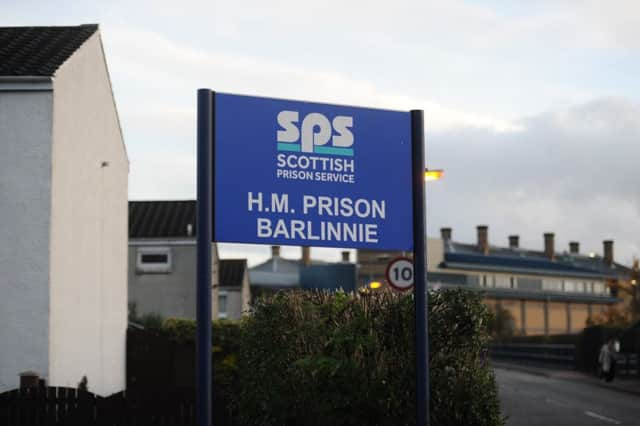Should the rest of the UK follow Scotland's lead on prisons?


Several penal establishments south of the Border have been rocked by serious unrest in the past two years, with one incident at HMP Birmingham in December 2016 described as the worst since the infamous Strangeways riot in 1990.
Now experts are to ask if Scotland is “imprisoning differently” from the rest of the UK and what lessons can be learned.
Advertisement
Hide AdAdvertisement
Hide AdSenior members of the Howard League, Sacro, and the Positive Future-Positive Prison campaign will host a panel discussion in Edinburgh on April 26 focused on the Scottish case. It will follow a screening of a new documentary, Injustice, which asks if the current process of detention fulfils its assumed purpose.
Scotland’s prison population remains among the highest in Western Europe per-head of population, but has decreased in each of the last five years.
Official figures show the population falling by eight per cent over this period, from 8,179 in 2011-12 to 7,552 in 2016-17.
Justice secretary Michael Matheson is committed to reducing the use of short-term imprisonment, which research suggests does little to discourage reoffending, in favour of expanded community payback programmes and increased use of electronic tagging.
But the Scottish Conservatives this week warned dangerous criminals could be “let off the hook” and escape a jail sentence under Scottish Government plans to bring in a presumption against prison terms of less than one year.
Figures on criminal proceedings in Scotland also showed 99 offenders guilty of attempted murder or serious assault, along with 35 people who committed sexual assaults, were ordered to spend a year or less behind bars.
A Scottish Government spokeswoman told The Scotsman that short prison sentences had not proved an effective way of reducing reoffending.
She said: “This is about acting on the clear evidence in front of us: individuals released from a custodial sentence of 12 months or less are reconvicted nearly twice as often as those sentenced to a Community Payback Order and figures from May 2017 show that 53 per cent of offenders imprisoned for 12 months or less are reconvicted within a year.
Advertisement
Hide AdAdvertisement
Hide Ad“Community Payback Orders (CPOs) are a robust community sentence which make people pay back to the community, while addressing the underlying causes of their offending behaviour. Short prison sentences provide only limited access to rehabilitative services. Evidence indicates it is possible that imprisonment can in fact increase long-term offending by weakening social bonds and decreasing job stability.
“Our firm focus on more robust community sentencing, including the introduction of CPOs, has helped bring Scotland’s reconviction rates to an 18-year low, contributing to the large fall in crime over the last decade to a 43-year low.”
An Scottish Prison Service spokesman said the organisation had revised its vision mission and values to reflect a commitment “to help those in our care transform their lives”.
He added: “We have adopted a range of measures including through care support to help those in custody reintegrate into society more successfully and desist from reoffending. We have also worked in partnership with other agencies to develop approaches which will increase the employability prospects of those leaving custody.”
